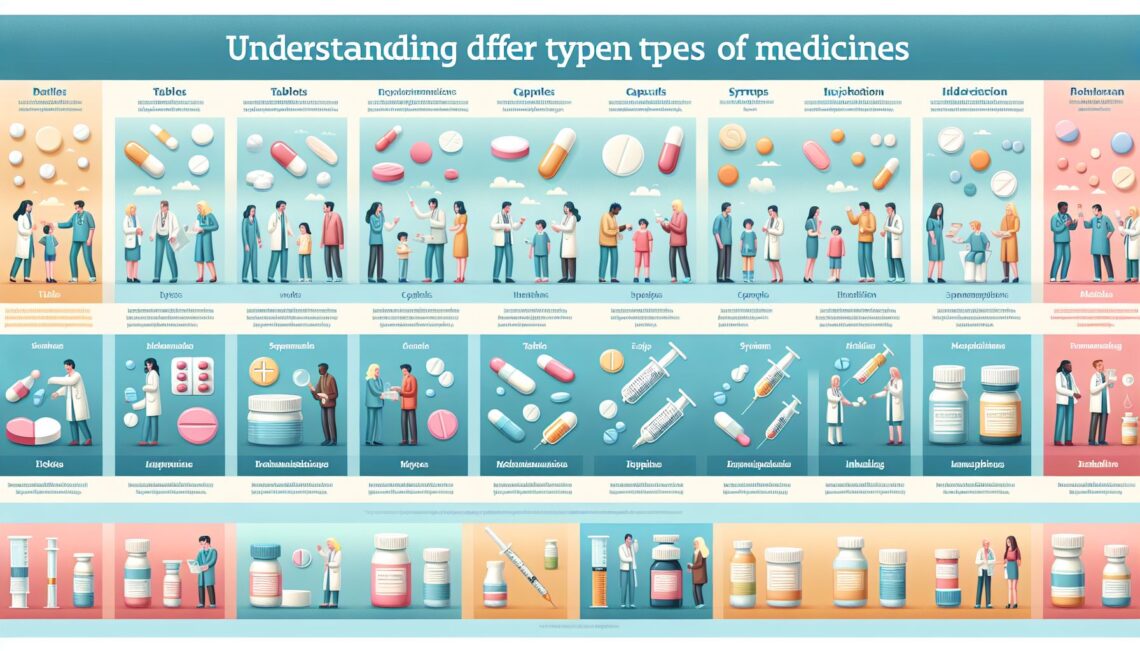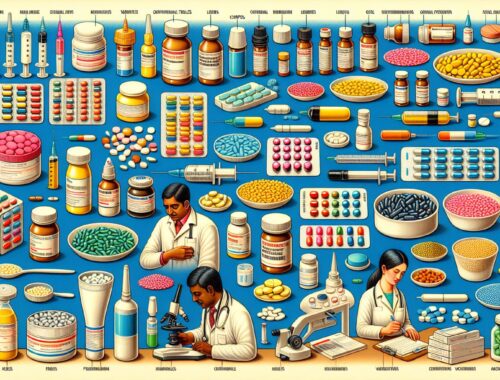
Understanding Different Types of Medicines
Medicines are an essential part of healthcare, used to treat a wide range of ailments and improve overall well-being. There are several types of medicines available, each designed to target specific health conditions. In this article, we will explore the different types of medicines and their roles in promoting good health.
Common Types of Medicines:
1. Prescription Medications:
Prescription medications are drugs that can only be dispensed with a valid prescription from a licensed healthcare professional. These medicines are commonly used for chronic conditions like high blood pressure, diabetes, or depression. Prescription medications require careful monitoring and are available in various forms such as tablets, capsules, creams, or injections.
2. Over-the-Counter (OTC) Medications:
OTC medications are readily available to consumers without a prescription. They are generally used to treat common ailments like headaches, fever, allergies, or minor injuries. However, one should carefully follow the recommended doses and precautions mentioned on the packaging.
3. Herbal or Natural Medicines:
Herbal or natural medicines are derived from plants and other natural sources. They have been used for centuries in traditional medicine systems to treat various health conditions. Herbal remedies are available in different forms, including teas, tinctures, extracts, or capsules. While they may be considered natural, it is important to consult a healthcare professional before using herbal medicines, as they can interact with other medications or have potential side effects.
4. Vaccines:
Vaccines are a type of medicine that helps prevent infectious diseases. They stimulate the immune system to produce antibodies against specific bacteria or viruses, providing protection against future infections. Vaccines have been instrumental in eradicating or significantly reducing many deadly diseases, such as polio, smallpox, and measles.
5. Antibiotics:
Antibiotics are powerful medications used to treat bacterial infections. They work by destroying or slowing down the growth of bacteria, reducing the severity of the infection and helping the body fight off the disease. It is crucial to use antibiotics as prescribed, completing the full course even if symptoms improve, to avoid the development of antibiotic resistance.
6. Antiviral and Antifungal Medications:
Antiviral medications are used to treat viral infections such as influenza, HIV, or hepatitis. They inhibit the replication of viruses and help control or reduce the symptoms of the infection. Antifungal medications, on the other hand, are designed to treat fungal infections like yeast infections or ringworm. These medications can be applied topically or taken orally, depending on the severity of the infection.
Conclusion:
Medicines play a vital role in treating and preventing diseases, as well as improving overall health and well-being. Understanding the different types of medicines empowers individuals to make informed decisions regarding their healthcare. Remember to always consult a healthcare professional before starting or changing any medication, even if it is an over-the-counter or herbal remedy. Proper use of medicines, following prescribed doses, and completing the full course greatly enhances their effectiveness and minimizes the risk of adverse effects.
You May Also Like

Exploring the Different Types of Medicines
April 2, 2024
Understanding Different Types of Medicines
January 1, 2024

